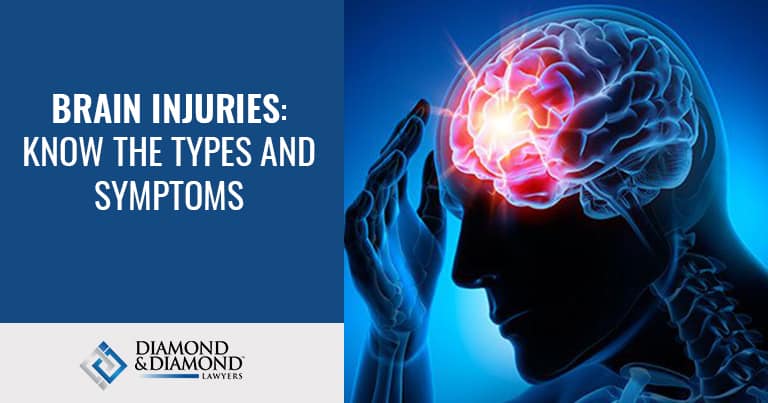A brain injury is defined as an injury that results in damage to the brain. Given the fact that your brain is such a crucial organ these kinds of injuries are considered to be amongst the most serious.
Most brain injuries have long-term consequences. Some of the complications you can suffer may not surface for years.
For many, suffering a brain injury turns out to be a life-altering event. Their lives can be turned upside down. Suddenly they can no longer do the things they have been used to doing. Sometimes people can no longer care for themselves and their ability to learn new skills may be adversely affected.
Often, the lives of their immediate family are also not the same anymore. They effectively lose the person they knew and may end up having to take on new responsibilities and become full-time carers.
Given the fact that the negative consequences are so bad, it is important to know about brain injuries. You need to understand what the different types are and how to spot their corresponding symptoms.
Types of Brain Injuries
These are the main types of general brain injuries:
- Traumatic brain injury – These injuries occur when the brain is subjected to some sort of sudden trauma. Usually, a severe blow to the head or the head being suddenly snapped backwards, forwards or from side-to-side. When that happens, the brain slams up against the skull which because the tissue is soft leads to severe damage. Often, the damage takes months, even years, to heal, if indeed it ever does.
- Concussion – This is a form of brain injury that involves a short-term loss of normal brain function. Usually, these injuries are not life-threatening. Although receiving repeated blows to the head that are heavy enough to cause or could cause a concussion can lead to long-term issues. Some studies indicate, for example, that you will be more prone to developing Alzheimer’s.
- Closed head injury – With this kind of injury the brain is damaged even though the skull has not been penetrated. Most blunt force head traumas fall into this category.
- Penetrating head injury – This is damage that has been caused by an object penetrating the skull and entering the brain.
Damages caused by traumatic brain injuries

When the brain is subjected to some form of impact, the following symptoms and injuries can occur:
- Swelling, or edema – When injured the brain and the tissue in the skull and neck area can swell. If that happens, it often leads to pressure building up inside the skull to the point where the brain’s ability to function is severely impaired.
- Bruising or hematoma – Bruising and hematomas are caused when blood capillaries are ruptured, and bleeding occurs around the veins. When that happens the brain swells. At the same time, blood can build up in the skull cavity, which puts even more pressure on the brain.
- Bleeding or hemorrhage – This is bleeding in or around the brain tissue. This injury causes headaches and vomiting. But, again, the amount of swelling and fluid in the area can build-up to the point where the brain starts to fail. The lack of blood flow makes things worse because it starves the brain of oxygen.
- Tearing – Occasionally, microscopic tears in the brain tissue can appear because of trauma. This kind of injury can lead to a loss of brain cells in those areas.
Symptoms of Brain Injuries
If you have been involved in an accident, had a hard knock playing sports or banged your head you need to be aware of the fact that you could have hurt your brain. It is extremely important to keep an eye out for the symptoms of a brain injury.
The sooner you get treatment the more likely it is that you will make a full recovery. Remember that you do not have to lose consciousness to end up suffering from a serious brain injury. Regardless of how severe the knock on your head or the whiplash you suffered was, keep an eye out for these symptoms:
- A persistent headache or neck pain
- Headaches or neck pain that keeps coming and going
- Light-headedness and feeling as if you might faint
- Nausea (the sensation of wanting to vomit)
- Actual vomiting
- Speech impairments
- Slurred speech
- Incoherent speech
- Seizures or fits
- Clear fluid or blood leaking from your ears or nose
- Loss of memory function
- An inability to focus
- Problems with decision-making
- Logic processing issues
- Difficulty reading
- Comprehension problems
- A general inability to concentrate
With some types of brain injuries, your senses may be affected. In that situation, you may experience:
- Blurred vision
- Your sense of taste not working properly
- Problems hearing
- Losing your sense of smell
- Having balance problems
- Ringing or buzzing in the ears (tinnitus)
- Disorientation or confusion
- A lack of time awareness
- Feeling lost in familiar places
- Not being able to complete familiar journeys
- Sensitivity to light
- Disrupted sleep
- Sleeping too much
- Loss of energy
- A lack of sex drive
- Sudden mood changes
- In children tantrums and more pronounced irritability
That is a lot of symptoms to look out for. So, keep this list somewhere you can easily find it, should you need to.
Understand the types of brain injuries and how to detect warning signs. If you or your loved one sustained a brain injury, talk to a Diamond & Diamond personal injury lawyer to file for compensation.
Consult with a Brain Injury Lawyer from Diamond & Diamond Today
Diamond & Diamond lawyers have extensive experience in personal injury claims, including brain injury cases.
Learn more about your legal options when it comes to brain injuries by reading our guide. You can also:
Visit any of our offices in Canada
Ring our 1-800 number to get a free consultation
Or you can reach us by using our online contact form on our website
PRO TIP :
“There are some personal injury lawyers that specialize in handling brain injury claims, and they often have experience in building a case or preparing arguments related to brain trauma.”














